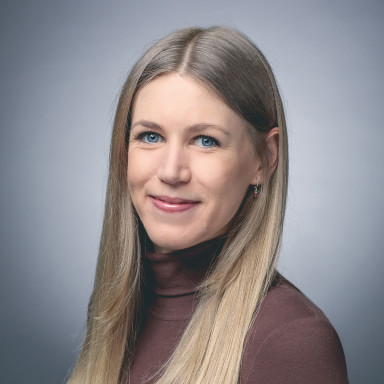Lead fund manager Nick Williams has over 30 years’ industry experience, making him one of the most experienced investors in the European Smaller Companies sector
He and his team invest in small and medium-sized European companies, which is different from most other European funds
The fund has delivered higher returns than the average fund in the European Smaller Companies sector over the longer term
The fund is on our Wealth Shortlist of funds chosen by our analysts for their long-term performance potential
How it fits in a portfolio
Barings Europe Select is different from many other European funds. It invests in small and medium-sized companies with a GARP (Growth at a Reasonable Price) investment style. This means the managers invest in companies they believe can grow earnings steadily, but where the shares can be bought at a lower price than the earnings potential suggests they should be. Many other European funds focus on larger, more established companies. The focus on smaller businesses increases risk though.
The fund could be used to diversify the European part of an investment portfolio, or a broader global portfolio focused on growth. A focus on smaller firms can also help diversify a long-term portfolio with a bias to larger companies.
Manager
Nick Williams is Head of Small and Mid-Cap Equities at Barings. He has over three decades of experience investing in Europe and managed funds investing in companies of all sizes. We believe this has given him superior knowledge of the wider European market over the length of his career.
Williams joined Barings in 2004 and took over management of the Europe Select fund shortly after. There aren’t many fund managers with such a long and successful track record of investing in this less familiar area of the European stock market. He’s demonstrated a long-standing commitment to his investment process and it’s a quality we rate highly.
Williams is supported by three co-managers - Colin Riddles, Rosie Simmonds, and William Cuss, who bring varying levels of experience to the table. They have a strong team of analysts to call upon too, alongside the research of other teams at Barings, including the Pan European and Global teams.
Process
Williams has followed the same investment process for many years – investing in companies he believes can grow earnings steadily, but where the shares can be bought at a lower price than the earnings potential suggests they should be.
Williams instils this focus across his team. They scour the continent to identify smaller European companies they believe are in good financial shape, have low levels of debt, and are run by quality management. They only invest in a company if they believe its share price can rise by at least 40%. Companies should also be sufficiently liquid, meaning their shares should be relatively easy and quick to buy and sell, which isn’t the case for all smaller firms.
The managers focus on the prospects of individual companies and invest in those they believe will do well regardless of what’s going on in the economy – their focus is ‘stock selection’. If a company’s shares hit their price target, the team will either sell some shares and take the profits, revise their price target if they think there is further room for growth, or sell it and invest in a different opportunity. If the share price falls by 20% the team will sell the investment. We like the team’s disciplined investment approach, which has served investors well over the longer term.
Currently the fund is focused on companies that could benefit from discretionary consumer spending, and industrials, which is a sector made up of a range of different businesses. Sectors like real estate are avoided as companies here don’t tend to meet the quality and growth characteristics the managers look for.
Within the consumer discretionary sector, new investments include Avolta, a Swiss-based travel retailer which operates duty-free shops and convenience stores, Brunello Cucinelli, an Italian luxury fashion brand, and Kion Group, a German supplier of forklifts and warehouse equipment.
On the other hand, HelloFresh, the German-based meal kit provider was sold from the fund. The company was held and performed well in 2020, benefiting as customers favoured at-home delivery over visiting food stores during Covid. The managers then sold the shares and banked a profit but bought shares again after they fell and could be bought at a lower price. The shares didn’t perform as expected this time though and, given the managers feel the outlook is no longer as favourable, they have sold the shares and reinvested the money elsewhere.
While the managers don’t currently invest in them, investors should be aware they have the flexibility to use derivatives (borrowing to invest), which can magnify any gains or losses and increases risk.
Culture
We view Williams as the key manager behind this fund, and currently most of our conviction lies with him. But we are satisfied by the fact he's built a robust and collaborative team around him. All team members follow the same process, and they're encouraged to bring challenge and debate to each other's investment ideas, which we think is important.
The team are also influential throughout Barings, among other analysts and portfolio managers, which reflects their strength and fund management abilities. Williams also co-manages a few other funds at Barings, but we are comfortable his focus is on European companies.
ESG integration
Barings believes that incorporating ESG (Environmental, Social and Governance) factors into its analysis provides a more thorough understanding of the complex issues, risks and value drivers that may impact its funds over time. All Barings fund managers incorporate ESG criteria into their investment processes, with the aim to improve returns. They use an ‘ESG assessment’ to identify improving or deteriorating ESG standards, and this can impact the assessment of a company.
Barings fund managers discuss ESG issues when they meet companies. The manager or analyst responsible for the financial analysis is also responsible for the ESG analysis, which means it’s fully integrated into the investment process. They generally prefer to engage with companies, rather than exclude them completely, but the firm will not knowingly invest in companies that produce, stockpile or use controversial weapons.
While Barings continues to develop its approach to ESG, the team on this fund has integrated ESG factors into their work for a number of years. They use nine key topics to help assess a company’s ESG impact, which could highlight businesses that use more sustainable practices and can thrive over the long term. This may help uncover risks that are less obvious through more traditional company analysis. More recently they’ve integrated assessing a company’s carbon costs, their current emissions and decarbonisation commitments.
Cost
This fund is available at an annual ongoing fund charge of 0.81%, but we've secured HL clients an ongoing saving of 0.10%. This means you pay a net ongoing charge of 0.71% and makes the fund one of the lowest-cost actively managed funds available in the European Smaller Companies sector through HL.
The fund discount is achieved through a loyalty bonus, which could be subject to tax if held outside of an ISA or SIPP. The HL platform fee of up to 0.45% per year also applies,except in the HL Junior ISA, where no platform fee applies.
Performance
Since Williams became the lead fund manager in January 2005, the fund has returned 629.53%* versus 530.69% for the average fund in the IA European Smaller Companies sector. Over the longer term this fund has tended to hold up better than the broader market when it's fallen. It hasn't kept up quite as quickly when the market has risen though. Please remember that past performance is not a guide to future returns.
The performance of smaller companies can be volatile, and we’ve seen this in recent years. The fund went through a tougher time in 2022 as, not only did European smaller companies more broadly struggle, but the team’s quality growth investing style also fell out of favour.
Over the past year performance has improved, particularly so far in 2024, though this is a short timeframe. Italian truck maker Iveco has recently performed well, partly as management made progress on getting rid of unprofitable parts of the business, while increasing profits in others. Pandora, the Danish jewellery business, also performed well as it continued to improve profits, product innovation and online sales.
As with any fund, some companies haven’t been as successful. Shares in Hugo Boss were weaker, partly as the business reduced its sales growth outlook for this year. The team remains invested though as they believe the longer-term prospects for profit and sales growth are not currently reflected in the share price.
Over the longer term we feel the fund could benefit from an experienced team and robust investment process, though as always there are no guarantees.
Annual percentage growth
30/04/2019 To 30/04/2020 | 30/04/2020 To 30/04/2021 | 30/04/2021 To 30/04/2022 | 30/04/2022 To 30/04/2023 | 30/04/2023 To 30/04/2024 | |
|---|---|---|---|---|---|
Barings Europe Select | -7.10 | 37.99 | -11.96 | 1.56 | 4.15 |
IA European Smaller Companies | -10.73 | 54.50 | -9.09 | 0.42 | 4.61 |


